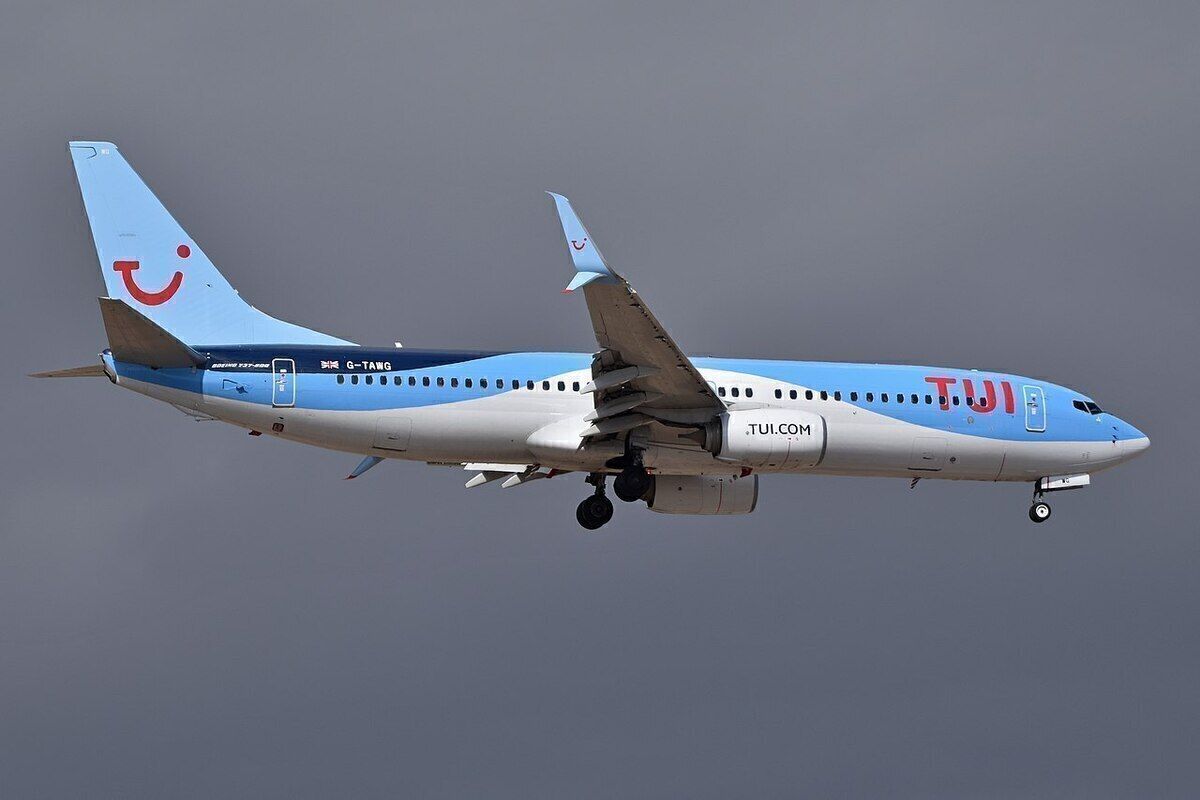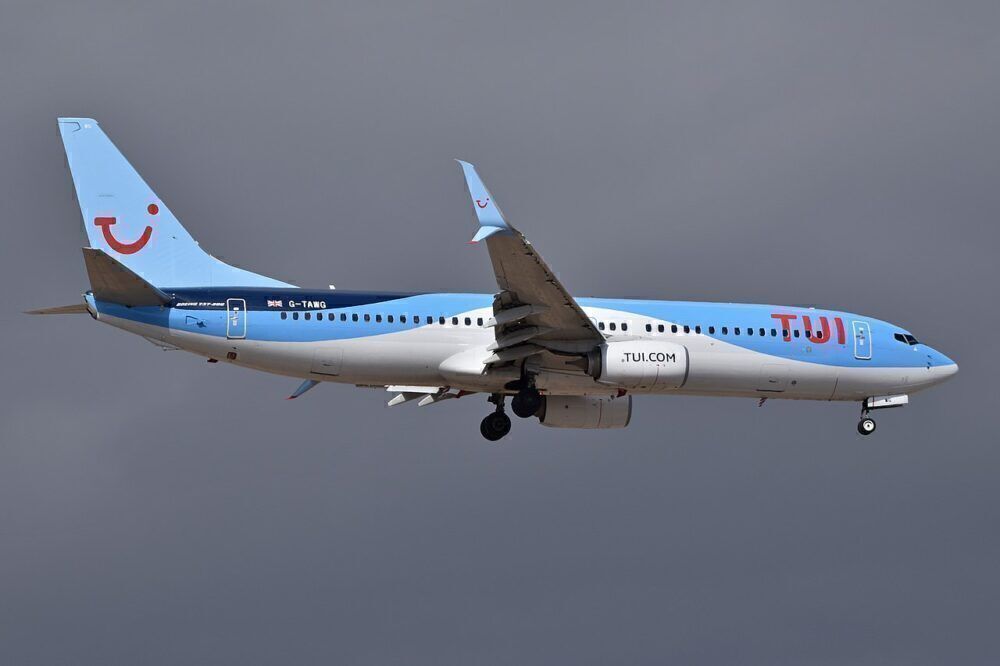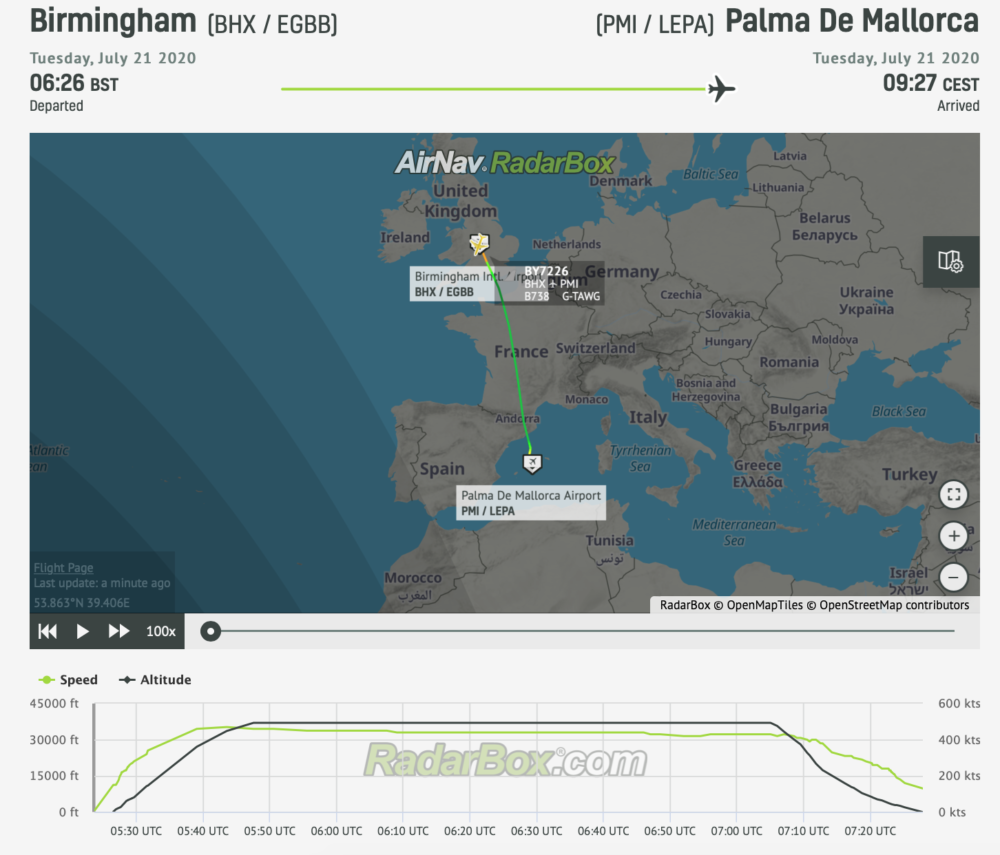On July 21st, 2020, a TUI Airways 737 was deemed to have conducted an underpowered takeoff. The findings, as determined by the UK's AAIB (Air Accidents Investigation Branch), concluded that an IT system flaw produced an inaccurate load sheet, leading to an incorrect takeoff weight. 38 adult females were mislabeled as children, estimating each of these passengers as weighing half of the standard estimate for the appropriate category.
"The health and safety of our customers and crew is always our primary concern. Following this isolated incident, we corrected a fault identified in our IT system. As stated in the report, the safe operation of the flight was not comprised." - TUI Airways spokesperson
When an aircraft is prepared to take flight, a number of factors are taken into consideration. In addition to meteorological data and cargo, the weight of passengers is also considered. These factors will determine how much fuel goes into the aircraft and how much takeoff thrust should be used. Let's take a closer look at how an IT system error led to an underpowered takeoff.
Flight details
The flight took place on July 21st of 2020 as flight BY7226 from Birmingham to Palma de Mallorca. Operated by a Boeing 737-800 registered as G-TAWG, The Aviation Herald notes that this particular flight had 167 passengers and six crew members.
As the crew prepared for departure, they noticed a discrepancy of 1,606kg between the loadsheet and flight plan. Here's what the AAIB report states for this particular moment:
"They noted that the number of children shown on the load sheet was higher than expected, at 65, compared to the 29 which were expected on the flight plan. The commander recalled thinking that the number was high but plausible."
Therefore, satisfied with the data on the loadsheet, they used it for their takeoff computations and departed Birmingham for Spain.
While the aircraft performed an uneventful flight with a safe landing in Palma de Mallorca, the jet had actually taken off one knot slower than it was supposed to, requiring a higher takeoff thrust. For those interested in the more technical aspect of the underpowered takeoff, the AAIB report explains this in greater detail.
Stay informed: Sign up for our daily and weekly aviation news digests.
38 adults labeled as children
Despite a safe and uneventful flight, the AAIB investigated the situation, labeling it a "serious incident." It noted that "the weight of passengers on the load sheet was below the actual weight of the passengers by 1,244kg." So how did this happen?
It was discovered that the incident occurred due to a simple flaw in the programming of the IT system, which was being updated as part of a wider system upgrade for the airline industry.
Program training had tested the usage of prefixes such as Mr, Mrs, and Dr. However, it was noted that "The relationship between a passenger’s title and the standard weight allocated was not discussed." Building on this, the country that had programmed the system had been using the title of "Miss" to indicate a child, while "Ms" was used to note an adult female. "This issue had not been identified as part of the initial risk analysis and did not manifest itself during the trial simulations," the report adds.
These errors led to the situation, as described by the AAIB:
"When a female passenger checked in for the flight and used or was given the title ‘Miss’, [it] caused the system checked her in as a child. The system allocated them a child’s standard weight of 35 kg as opposed to the correct female standard weight of 69 kg."
As a result, the incident flight saw 38 females checked in incorrectly, misidentified as children.
Corrective action
The AAIB notes that TUI Airways took the following action to prevent the situation from re-occurring:
- A member of the Systems team manually checked the flights daily to ensure that the title ‘Miss’ was amended to ‘Ms.’
- A secondary check was instigated with the Operations department against the booked passenger loads.
- A reminder briefing was given to Ground Handling Agents to ask them to be alert at check-in or during boarding for any adult female passengers showing as Miss or a child.
- A formalized procedure for a Customer Care Executive to check bookings was instituted on 24 July 2020.
Thankfully in this instance, the flight was completed without any complications. However, it's a good reminder that even the smallest programming decisions can potentially have much worse consequences if not detected in time.
We'd love to hear your reaction to this incident. Share it by leaving a comment.



